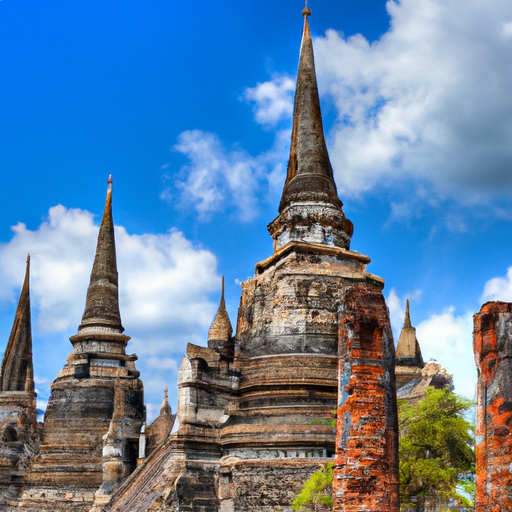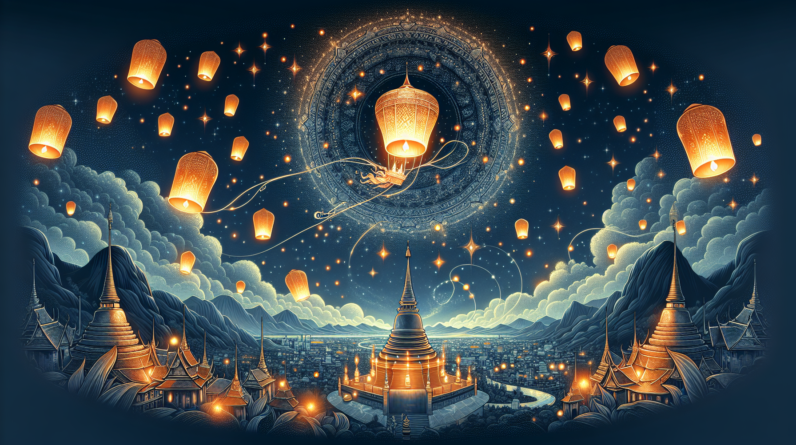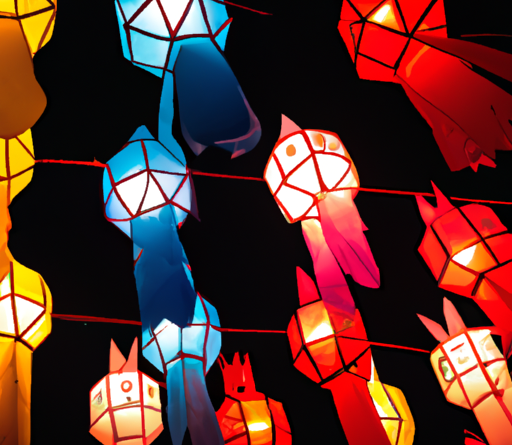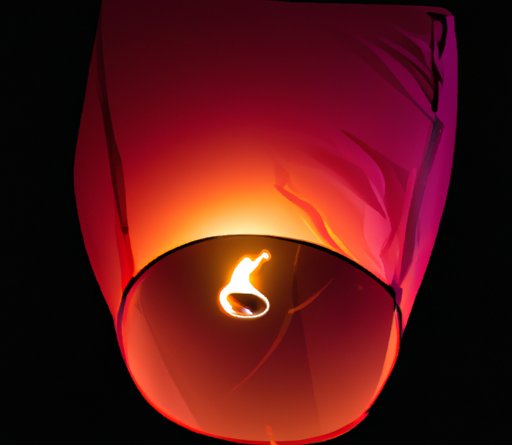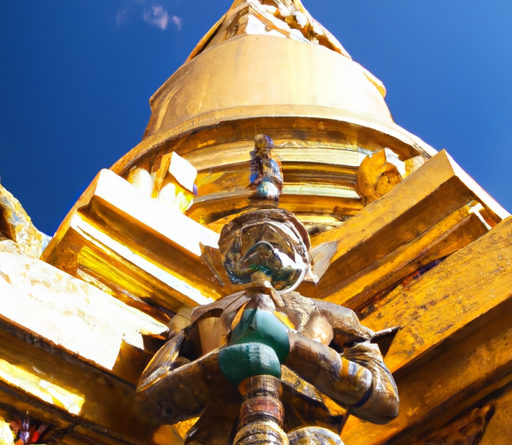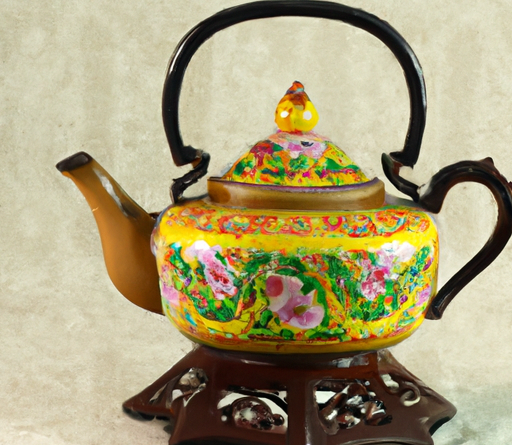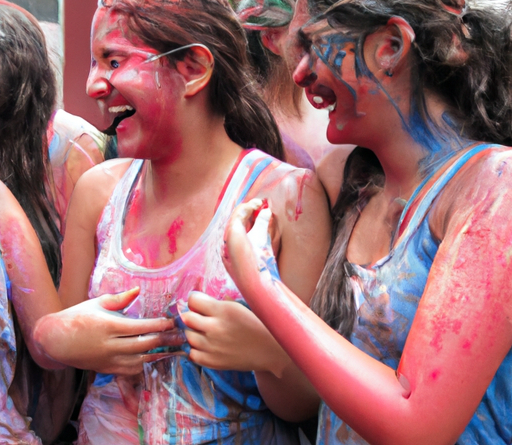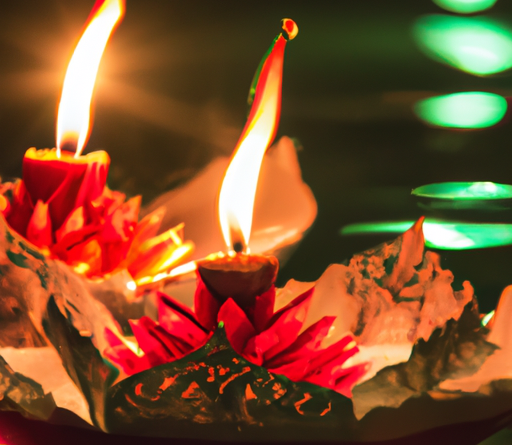
During your cultural journey through Thailand, it is essential to grasp the significance and vibrant essence of Thai festivals. These festivals serve as windows into the rich cultural heritage of the country, allowing you to immerse yourself in the celebration of traditions, rituals, and lively performances. From the exuberant Songkran water festival to the mystical Loy Krathong lantern festival, each event offers a unique and unforgettable experience. In this article, we will explore the various Thai festivals that you can witness and understand during your remarkable journey, providing you with insights into their origins, customs, and the spirit of unity they bring to the Thai people. Get ready to be captivated by the colors, sounds, and flavors of Thai festivals, as they illuminate your path through this enchanting land.
Traditional Thai Festivals
Songkran Festival
The Songkran Festival is undoubtedly one of the most famous and widely celebrated festivals in Thailand. It marks the traditional Thai New Year and is celebrated with water fights, parades, and religious ceremonies. During this festive occasion, people throw water at each other as a symbol of washing away the old year’s misfortunes and welcoming the new year with renewed energy and positivity. It is a great opportunity for locals and tourists alike to come together and enjoy the lively atmosphere.
Loi Krathong Festival
The magical Loi Krathong Festival takes place on the full moon of the twelfth month in the Thai lunar calendar, typically falling in November. It is a time when people gather near rivers, lakes, and canals to float “krathongs” – small lotus-shaped vessels made of banana leaves or bread. These beautifully decorated containers carry candles, incense, and sometimes small offerings, symbolizing the release of negativity, letting go of grudges, and making wishes for the future.
Yi Peng Lantern Festival
Yi Peng Lantern Festival, also known as the Lantern Floating Festival, is a truly mesmerizing event that showcases the charm and elegance of Thai culture. Celebrated simultaneously with the Loi Krathong Festival, the skies are illuminated with thousands of floating lanterns. People release these lanterns into the night sky as a way to make wishes, bring good luck, and to honor Buddha. The sight of these floating lights is a breathtaking experience that should not be missed.
Makha Bucha Day
Makha Bucha Day is a significant Buddhist festival that commemorates the day when 1,250 enlightened disciples gathered to listen to Buddha preach spontaneously without prior notice. It usually falls on the full moon day of the third lunar month, which generally falls in February or March. On this day, Buddhists visit temples to make merit, listen to sermons, and participate in candlelit processions. The serene ambiance and the deep sense of spirituality make Makha Bucha Day an important religious and cultural celebration in Thailand.
Visakha Bucha Day
Visakha Bucha Day, also known as Vesak Day, is considered the most important day in the Buddhist calendar as it commemorates the birth, enlightenment, and death of Buddha. Celebrated on the full moon of the sixth lunar month, which usually falls in May, it is a time for Buddhists to reflect on Buddha’s teachings and practice compassion, morality, and meditation. On this auspicious day, temples across the country are adorned with lanterns and flowers, and people engage in various religious activities to pay homage to Buddha and his teachings.
Religious Thai Festivals
Boon Bang Fai Rocket Festival
The Boon Bang Fai Rocket Festival, also known as the Rocket Festival, is a lively and eccentric event held in northeastern Thailand, known as Isan. This festival celebrates the arrival of the rainy season and aims to beckon the rain gods for a bountiful harvest. The highlight of the festival is the rocket launching competition, where participants build and launch homemade rockets into the sky, competing for the highest and most spectacular launch. The festival also features parades, music, traditional dances, and vibrant costumes, making it a sight to behold.
Phi Ta Khon Ghost Festival
The Phi Ta Khon Ghost Festival, held in the town of Dan Sai in Loei province, is a colorful and unique celebration that combines both religious and cultural elements. The festival features locals dressed in vibrant ghost costumes, wearing masks made of rice husks and bamboo, and parading through the streets. This lively procession is accompanied by traditional music, dances, and performances, creating a festive and vibrant atmosphere. The Phi Ta Khon Ghost Festival is believed to bring good luck and scare away evil spirits, making it a fascinating and mystical event to witness.
Phuket Vegetarian Festival
The Phuket Vegetarian Festival is a nine-day event held during the ninth lunar month of the Chinese calendar, usually falling in September or October. This festival is a blend of Chinese Taoist beliefs and Thai culture. Participants observe a strict vegetarian diet and engage in various rituals and ceremonies to cleanse their body and mind. The festival is famous for its ritualistic body piercing, where devotees pierce their bodies with swords, skewers, and other sharp objects as an act of purification and to demonstrate their devotion. The Phuket Vegetarian Festival is a unique and awe-inspiring experience that showcases the strong cultural heritage of the Thai-Chinese community in Phuket.
Ubon Ratchathani Candle Festival
The Ubon Ratchathani Candle Festival is a grand and elaborate event held in Ubon Ratchathani province in northeastern Thailand. This festival marks the beginning of the three-month Buddhist Lent period and is celebrated with magnificent candle processions. Elaborate wax sculptures and intricate candle carvings are meticulously crafted by local artisans and paraded through the city streets. This visually stunning spectacle attracts thousands of visitors annually and offers a unique glimpse into the artistry and craftsmanship of the region.
Regional Festivals
Chiang Mai Flower Festival
The Chiang Mai Flower Festival is a vibrant and colorful festival held annually in February, showcasing the stunning beauty of flowers. The festival features floral parades, flower exhibitions, and competitions that display a variety of exotic and local flowers. The streets of Chiang Mai come alive with intricate flower arrangements, and the air is filled with the fragrant aroma of blossoms. This festival provides a unique opportunity to immerse yourself in the beauty of nature and appreciate the artistry of flower arranging.
Surin Elephant Festival
The Surin Elephant Festival in Surin province celebrates the importance of elephants in Thai culture and history. Known as the “Land of Elephants,” Surin hosts this spectacular event each November. Visitors can witness impressive elephant shows, traditional elephant processions, and even participate in elephant-related activities such as elephant bathing and feeding. The Surin Elephant Festival is a testament to the deep bond between the Thai people and these majestic creatures.
Phra Nakhon Si Ayutthaya World Heritage Fair
The Phra Nakhon Si Ayutthaya World Heritage Fair is an annual event held in Ayutthaya, a UNESCO World Heritage site. This fair celebrates the historical significance of Ayutthaya, once the capital of the Kingdom of Siam. Visitors can experience traditional performances, exhibitions, and demonstrations that highlight the rich cultural heritage of Ayutthaya. The fair serves as a reminder of the glorious past and the enduring legacy of this ancient city.
Trang Underwater Wedding Ceremony
The Trang Underwater Wedding Ceremony is a unique cultural event that takes place in Trang province. This distinctive festival allows couples to exchange their vows underwater while dressed in traditional Thai wedding attire. The crystal-clear waters provide a stunning backdrop for the ceremony, creating an unforgettable and romantic experience. The Trang Underwater Wedding Ceremony showcases the creativity and uniqueness of Thai wedding traditions.
Phi Ta Khon Ghost Festival in Loei
The Phi Ta Khon Ghost Festival in Loei province is a regional variation of the Phi Ta Khon Ghost Festival mentioned earlier. While both festivals share similar features, such as the ghost costumes and the vibrant parades, each has its own distinct characteristics and traditions. The Phi Ta Khon Ghost Festival in Loei is known for its energetic music and dance performances, making it an exhilarating and entertaining experience.
Historical Significance of Thai Festivals
Festivals to Commemorate Thai Royalty
Thai festivals often serve as occasions to honor and remember members of the Thai royal family. Festivals such as the Royal Kathina Ceremony, which takes place after the end of Buddhist Lent, and the Royal Ploughing Ceremony, which marks the beginning of the planting season, are celebrated with great reverence and reflect the deep respect and admiration the Thai people have for their monarchy. These festivals provide a glimpse into the rich history and cultural significance of the Thai royal institution.
Festivals with Buddhist Historical Importance
Buddhism has played a crucial role in shaping Thai culture and society. Many festivals in Thailand have their roots in important Buddhist events and historical moments. For example, the Loy Krathong and Yi Peng Lantern Festivals honor Buddha’s teachings and celebrate his enlightenment. Makha Bucha Day and Visakha Bucha Day commemorate significant milestones in Buddha’s life. These festivals allow people to connect with their spiritual beliefs while celebrating their cultural heritage.
Festivals Preserving Thai Cultural Heritage
Thai festivals are an integral part of preserving Thailand’s cultural heritage. They provide an opportunity for the younger generation to learn about and appreciate traditional practices, customs, and craftsmanship. From the intricate wax sculptures of the Ubon Ratchathani Candle Festival to the stunning flower arrangements of the Chiang Mai Flower Festival, these festivals showcase the skills and expertise passed down through generations. By participating in these festivals, both locals and visitors contribute to the preservation and promotion of Thai cultural heritage.
Festivals Celebrating Thai Agricultural Traditions
Agriculture has always been the backbone of Thailand’s economy and way of life. Many Thai festivals celebrate the agricultural traditions and practices that have sustained the nation for centuries. Festivals such as the Rocket Festival and the Phra Nakhon Si Ayutthaya World Heritage Fair pay homage to the crops and fertility of the land, showcasing the close relationship between Thai people and the natural environment. These festivals serve as a reminder of the agricultural roots of Thai society and the importance of sustainable farming practices.
Influence of Buddhism on Thai Festivals
Buddhist Rituals and Ceremonies
Buddhism is deeply ingrained in Thai culture, and its influence can be seen in the numerous rituals and ceremonies observed during Thai festivals. As a predominantly Buddhist country, many festivals involve visiting temples, making merit, and participating in Buddhist rituals. These ceremonies often include chanting, offering of flowers and incense, and performing acts of kindness and compassion. The presence of Buddhist rituals adds a spiritual element to the festivities and creates a sense of tranquility and reflection.
Merit-making and Alms Offering
Merit-making is an essential practice in Buddhism and is closely associated with Thai festivals. People engage in acts of generosity, such as making donations to temples and offering food to Buddhist monks. These acts of merit-making are believed to bring blessings and good fortune. During festivals, the opportunity to make merit is heightened, with special ceremonies and rituals conducted to accumulate positive karma. Merit-making and alms offering during Thai festivals provide participants with a sense of fulfillment and spiritual growth.
Processions and Temple Fairs
Processions are a common element in many Thai festivals, especially those with religious and historical significance. Devotees and participants join colorful parades that wind their way through the streets, carrying religious relics, statues, and other sacred objects. These processions create a festive atmosphere and allow people to showcase their devotion and reverence. Alongside these processions, temple fairs are often held, featuring market stalls, food vendors, and cultural performances. The combination of processions and temple fairs creates a vibrant and lively atmosphere during Thai festivals.
Cultural Activities during Thai Festivals
Traditional Thai Dance Performances
Traditional Thai dance is a captivating form of expression that is often showcased during Thai festivals. These graceful and elegant performances tell stories from ancient mythology or depict everyday life in Thailand. Dancers dressed in dazzling costumes and accompanied by traditional music captivate audiences with their precise movements and intricate choreography. Traditional Thai dance performances provide insight into the rich cultural heritage of Thailand and offer a feast for the senses.
Thai Music and Musical Instruments
Thai music plays an integral role in festivals, adding a vibrant and lively element to the celebrations. Traditional Thai musical instruments, such as the khim, ranat ek, and pi chawa, are used to create mesmerizing melodies that accompany dance performances and parades. The rhythmic beats of drums and the melodic sounds of gongs contribute to the festive ambiance and serve as a reminder of the deep cultural roots in Thai society.
Thai Traditional Costume Parades
Thai festivals often provide an opportunity for locals to showcase their traditional costumes through vibrant parades and exhibitions. These costumes, adorned with intricate patterns and embellishments, reflect the diverse cultural heritage of Thailand. From the elegant Thai silk dresses of the north to the elaborate attire of the southern provinces, each region has its distinct traditional costume. Thai traditional costume parades celebrate the beauty and diversity of Thai fashion and allow people to express their cultural identity with pride.
Thai Food and Culinary Delights
Thai cuisine is renowned worldwide for its vibrant flavors, aromatic herbs, and spices. Many Thai festivals are a paradise for food lovers, offering an array of delectable dishes and culinary delights. Street stalls come alive with the sizzling sounds and tantalizing aromas of Thai street food. From traditional dishes like pad Thai and green curry to lesser-known regional specialties, festivals provide an opportunity to savor the rich flavors of Thai cuisine and experience the culinary diversity of the country.
Significance of Traditional Thai Costumes
Different Types of Thai Traditional Costumes
Traditional Thai costumes vary across regions, reflecting the diversity of Thai culture. In the north, females wear “Sinh” – a long rectangular piece of cloth wrapped around the waist. The central region is known for the elegant “Chut Thai Phra Nakhon” – a dress adorned with intricate patterns and vibrant colors. The southern provinces have their distinctive costume styles, with women wearing “Boran Tuob” – a sarong-like garment. Each type of Thai traditional costume tells a story and represents the cultural heritage of its respective region.
Symbolic Meaning Behind Each Costume
Thai traditional costumes are more than just garments; they are symbols of identity, status, and cultural heritage. Each element of the costumes, from the colors and designs to the accessories, carries symbolic meanings. Vibrant colors such as gold and red symbolize prosperity and good fortune, while intricate patterns represent the richness and diversity of Thai culture. Accessories like headpieces and jewelry often hold deeper significance, signifying social status and adding an extra touch of elegance.
Role of Costumes in Expressing Heritage
Thai traditional costumes play a crucial role in preserving and expressing Thai heritage. They serve as a visual representation of the cultural traditions, history, and narratives of each region. The intricacy and attention to detail in the costumes showcase the craftsmanship and artistic skills passed down through generations. By wearing these costumes during festivals, Thai people honor their cultural roots and keep their heritage alive. Traditional Thai costumes are a source of pride, unity, and a reminder of the richness and beauty of Thai culture.
Celebrating Thai Cuisine During Festivals
Prominent Foods and Dishes
Thai festivals are a gastronomic delight, offering a wide range of dishes that cater to every palate. Some prominent foods and dishes commonly enjoyed during festivals include Pad Thai, Tom Yum Goong, Green Curry, Som Tum (papaya salad), and Mango Sticky Rice. These dishes showcase the bold flavors and aromatic herbs and spices that have made Thai cuisine beloved worldwide. Thai festivals provide an opportunity to indulge in these iconic dishes and explore the diverse flavors that define Thai culinary culture.
Unique Ingredients and Traditional Cooking Techniques
Thai cuisine is known for its unique ingredients and traditional cooking techniques that elevate its flavors. From the intense aroma of galangal and lemongrass to the fiery heat of Thai chilies, Thai dishes are a harmony of bold and balanced flavors. Festivals often emphasize the use of fresh local produce and traditional cooking methods, such as pounding ingredients in a mortar and pestle to release their flavors or grilling over charcoal to impart a smoky taste. Thai festivals offer a chance to witness and savor the authentic flavors that define Thai cuisine.
Food-Related Customs and Superstitions
Food-related customs and superstitions are an integral part of Thai culture and are often observed during festivals. For example, during the Songkran Festival, it is considered auspicious to make and offer traditional sweets to Buddhist monks. Similarly, during the Phuket Vegetarian Festival, participants adhere to a strict vegetarian diet, believing it brings good luck and blessings. These customs and superstitions reflect the deep cultural beliefs and traditions surrounding food and demonstrate the integral role it plays in Thai festivals.
Community Participation in Thai Festivals
Local Communities as Organizers and Participants
Thai festivals are not just organized and celebrated by a select few; they are community-led events that involve the entire neighborhood or village. Local communities play a crucial role in the planning, organizing, and execution of festivals, ensuring that the traditions and customs are upheld. From constructing elaborate floats and costumes to cooking traditional dishes and performing cultural dances, everyone contributes to the success and vibrancy of the festival. The spirit of unity and community participation during Thai festivals creates a deep sense of belonging and togetherness.
Traditional Crafts and Artisans
Traditional crafts and artisans play a significant role in Thai festivals, as their skills and expertise are showcased and celebrated. Festivals provide a platform for artisans to exhibit their craftsmanship, whether it be weaving intricate patterns on traditional costumes, creating elaborate wax sculptures, or crafting elaborate lanterns. Traditional crafts are an essential part of Thailand’s cultural heritage, and festivals offer an opportunity to appreciate and support the talented craftsmen and women who keep these traditions alive.
Volunteer Opportunities for Foreigners
Thai festivals are not just for the locals; they also offer volunteer opportunities for foreigners interested in actively participating in the cultural festivities. Many festivals welcome tourists and expatriates to join in the celebrations, allowing them to gain firsthand experience in Thai traditions and customs. Volunteers can help with various aspects of the festival, such as assisting with parade organization, distributing food and drinks to participants, or promoting cultural exchange. Volunteering during Thai festivals offers a unique and immersive way to connect with the local community and become part of the cultural fabric of Thailand.
Tips for Enjoying Thai Festivals
Plan Your Visit According to the Festival Calendar
To make the most of your experience, it is essential to plan your visit to Thailand around the festival calendar. Research the different festivals and their dates, and choose the ones that align with your interests and preferences. Thai festivals are spread throughout the year, so whether you are interested in vibrant water fights during Songkran or mesmerizing lantern releases during Yi Peng, there is a festival for everyone. By planning your visit accordingly, you can ensure that you do not miss out on the festivals that capture your imagination.
Learn about Festival Etiquette and Customs
Thai festivals come with their own set of etiquette and customs that should be respected and followed. Take the time to familiarize yourself with the do’s and don’ts to ensure that you are respectful and mindful of local traditions. For example, during Buddhist ceremonies and processions, it is important to dress modestly and remove your shoes when entering temples. Learning about festival etiquette enhances your cultural understanding and enables you to fully immerse yourself in the festivities.
Be Prepared for Crowds and Noise
Thai festivals are often crowded and bustling with excitement, so be prepared for large crowds and busy streets. Festivals draw locals and tourists alike, creating a vibrant and energetic atmosphere. Embrace the lively ambiance and be prepared for noise, as traditional music, parades, and performances fill the air with festive sounds. It is important to remain patient and enjoy the festivities despite the occasional crowded spaces.
Experience Festivals Outside of Bangkok
While Bangkok offers a multitude of festivals throughout the year, exploring festivals in other regions of Thailand provides a unique and authentic experience. Each region has its own distinct traditions and customs, adding to the diversity and richness of Thai festivals. Venture beyond Bangkok and discover festivals in Chiang Mai, Ayutthaya, and other provinces to immerse yourself in the local culture and witness the unique celebrations that make each region special.
Thai festivals offer a peek into the beautiful tapestry of Thai culture, history, and spirituality. Whether you are fascinated by the elaborate costumes, intrigued by the religious ceremonies, or simply love indulging in delicious Thai cuisine, these festivals provide an unforgettable cultural journey. By immersing yourself in the vibrant and lively atmosphere of Thai festivals, you will gain a deeper appreciation for the traditions, customs, and people that make Thailand truly remarkable. So, pack your bags, prepare your senses, and embark on a journey to experience the magic of Thai festivals.
